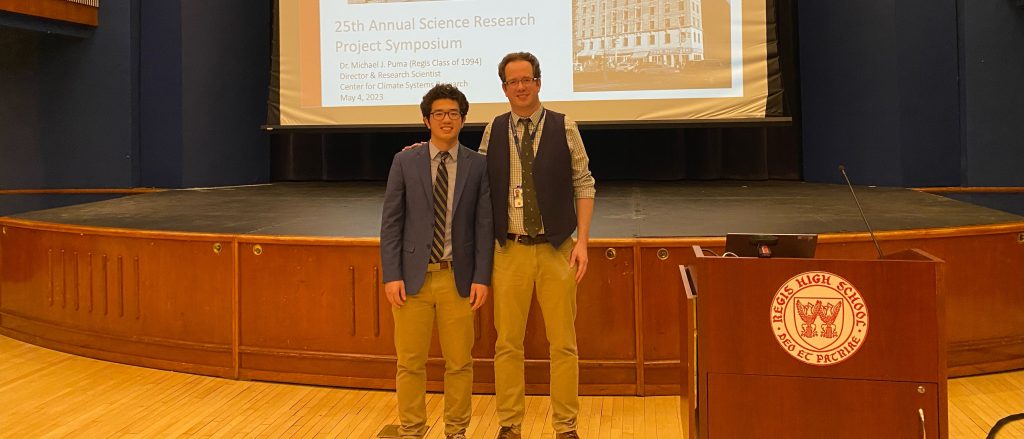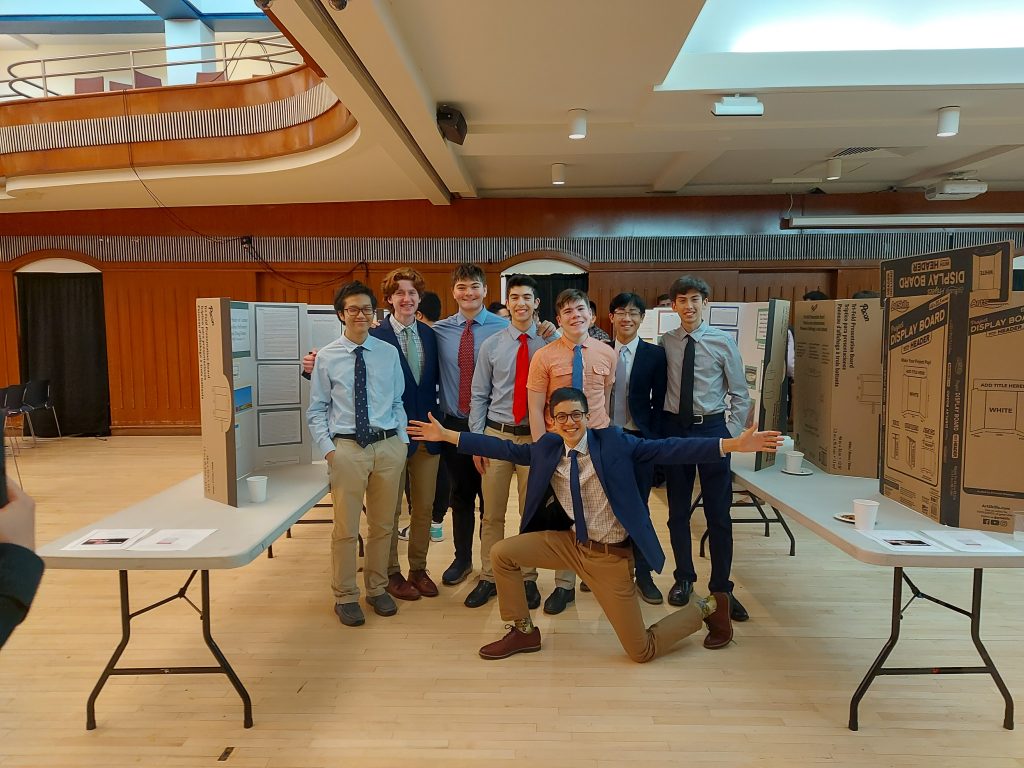Students Present Research at 25th Annual Science Symposium

The 29 students enrolled in Regis's Science Research Project course presented their findings on Thursday at the 25th annual Science Symposium.
Senior Aidan Puma ’23 and his father, Dr. Michael Puma ’94 P’20'23, delivered the keynote speeches at this year's event. Dr. Puma, the director of the Center for Climate Systems Research at the Columbia Climate School, presented his research on the global network of food trade and its susceptibility to natural and manmade disturbances such as megadroughts or wars.
His son Aidan, whose own interest in global food security led him to focus his SRP studies on the topic, presented on an open-sourced model called MaxHop that's designed to predict the presence of adolescent locust, also known as hoppers, that are a threat to food security in Africa. As part of his SRP research, Aidan worked to further develop MaxHop as a tool to predict the movement of adult locusts.
The SRP course is an intensive program open to sophomores, juniors, and seniors that gives students interested in scientific research the opportunity to investigate projects of their own design. This year’s symposium was dedicated to the late Mrs. Diane Walsh, who taught at Regis for nearly 40 years and was a driving force behind the implementation of SRP in 1991.
Other SRP work this year included sophomore Will Filocamo ’25 using a simulation tool to test the claim that the rounded corners of U-Haul trucks reduce wind drag and increase fuel economy by up to 20 percent, Julien Bober ’24's testing of the efficacy of various memory-retention strategies in foreign-language vocabulary retention, and Antonio Lobaccaro ‘23 and Leonardo Lobaccaro '23's joint work to improve the clarity and accessibility of open-source hardware for the Laser Interferometer Gravitational-Wave Observatory.
All SRP students are advised by either Mr. Frank Barona, Dr. Luca Matone, or Mr. Xavier Simon '05, who also serves as SRP coordinator. Students meet weekly with their mentor to seek guidance, but their projects are mostly self-driven. “Our students are more hungry now than ever to explore opportunities in research and science and to do lab techniques they’ve only read about in textbooks up until now," says Mr. Simon. “I think that doing work remotely was challenging, and coming back to do this work in person was fulfilling for them."
More information about this year's SRP work can be found in the Science Symposium’s program.
Read more Regis news
